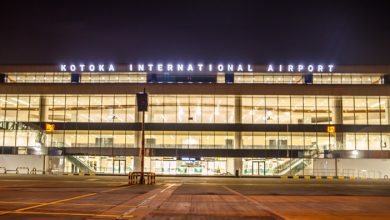FeaturedLocal News
COVID-19: Ghana’s active cases drop to 1,059

Ghana’s active COVID-19 cases have dropped from 1,325 to 1,059, according to the latest figures released by the Ghana Health Service (GHS).
This number is out of a total caseload of 44,298.
Of that number, 42,963 have recovered and been discharged.
Meanwhile, the new cases recorded recently are 72.
The death toll remains 276.
Regional breakdown
Greater Accra Region – 22,057
Ashanti Region – 10,843
Western Region – 2,953
Eastern Region – 2,294
Central Region – 1,874
Bono East Region – 763
Volta Region – 662
Western North Region – 619
Ahafo Region – 507
Northern Region – 497
Bono Region – 480
Upper East Region – 282
Oti Region – 237
Upper West Region – 88
Savannah Region – 62
North East Region – 19
Source: Ghana/otecfmghana.com




